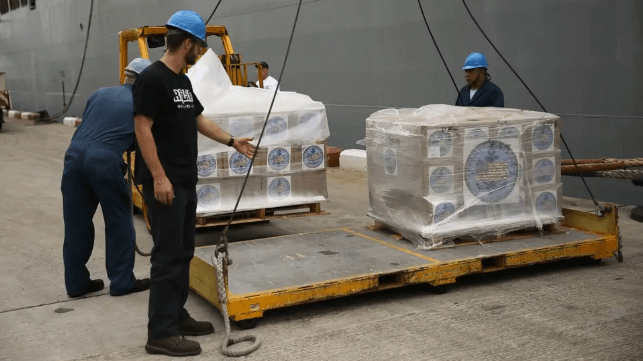Op-Ed: Mariner Shortage Could Put the Jones Act at Risk

Let’s take a little look at the American maritime industry today as it stands. In fact, why not have a look around at your own personal “work world.” In very simple terms, do you have enough trained employees to handle the work load you already have? And we are talking about the employees that sweep the floors all the way up to the “boss-man.” If you don’t have a trained and properly staffed work force, then you have no company at all.
A thriving workforce is the key to very survival of the commercial maritime industry in America. And it all revolves around the Jones Act being maintained in the future. If, or when, the Jones Act falls, everything in our professional world will change.
Everywhere I look, I see unfilled positions go wanting. I like to think I keep my “finger on the pulse” of employment opportunities. And if you want a job in the maritime industry these days, all you have to do is just wave your hand in the air and you have one. There are always open positions posted at the mariners’ unions. Check out job boards and you’ll find more jobs. Lots of them. Have you had a look lately at the Military Sealift Command web site? Jobs... Jobs... Jobs. Here at MITAGS (the school I teach at), we have openings for full-time instructors on both coasts. And these openings have been active for many months.
At least weekly, the Washington State Ferries are having to cancel sailings due to lack of crew. The ferry system has resorted to advertising on TV to get applicants interested in going to work for them. Even the U.S. Coast Guard has “a critical shortage of qualified personnel.”
About this time you might be thinking: So what? More work for mariners. Well, the fact is that if there aren’t enough American mariners, then there will be more pressure to end the Jones Act and bring in foreign labor. If we are not proactive today, this might well be what our future will look like.
So, what can we do right now to insure a bright future for a maritime industry staffed by Americans? Once again, in my humble opinion, we need to pump money into attracting and training new people for the industry. And we need lots of them. Everything from welders to truck drivers to technicians to mechanics to mariners. When I was young, they had something called shop class in schools, and at that time every vessel employed ordinary seamen. (Those days are just a memory.) How many companies employ lots of ordinary seaman these days? All the companies want AB’s. But if you don’t have OS’s, just where do the AB’s come from?
In your particular field of expertise, do you foster an active recruitment and retention program? Have you developed a community outreach program to get the folks that actually live close to your operation involved and interested in going to work for you? Do you offer internships, apprenticeships, and scholarships? Do you offer paid cadet positions? What about paid training programs? Why would a young person even want to come to work for you? Those days of just offering a paycheck are long gone. Certainly, these are some important things to think about.
No, this “revamping” of our attitude towards staffing will not be easy or cheap. There will probably be a need for a government/private industry collaborative effort to get things moving along. And, of course, it will take lots and lots of time and effort on all of our parts. But if we don’t do something right now, then without any question, the maritime industry in America will look entirely different in the not-to-distant future.
The opinions expressed herein are the author's and not necessarily those of The Maritime Executive.

